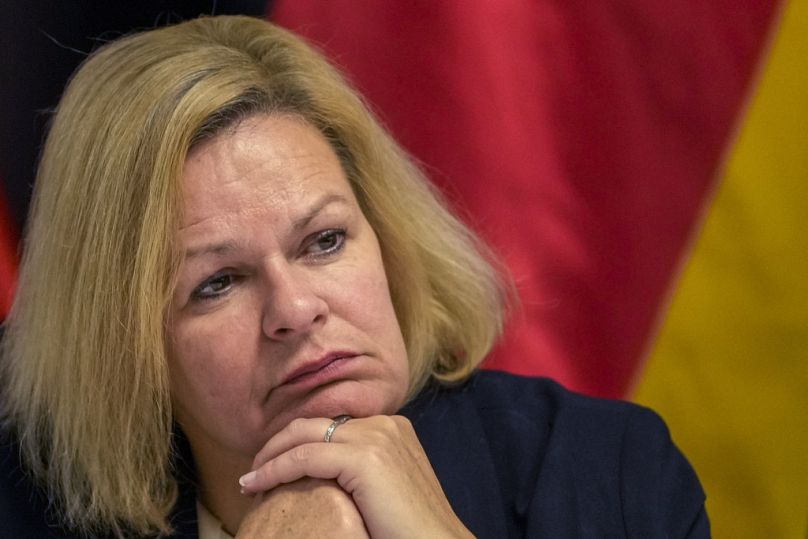Some 13 of the EU's 27 member states have reintroduced internal border checks with their neighbours in recent months, a departure from the normal border-free travel enjoyed in the Schengen zone.
Interior ministers from six European Union countries said on Monday their nations had agreed to step up efforts to protect the bloc from illegal immigration and target groups of people smugglers operating on its borders.
The ministers from the V4 group of central European nations - including the Czech Republic, Hungary, Poland and Slovakia - were joined by counterparts from Austria and Germany for a summit in the southern Hungarian city of Szeged, 8 kilometres from the bloc's border with Serbia.
Some EU governments fear that growing pressure from the so-called Balkan migration route, which leads from Serbia into Hungary, requires a tougher response from countries in the region.
Czech Interior Minister Vit Rakusan, who organised the summit, said migration was a "shared challenge" for Europe and that solutions must focus on preventing migrants from entering the bloc illegally.
"We are all on the same migration route. We share borders and the situation on the EU's external border affects us all," he said. He didn't give details on how the smugglers would be targeted.
Rakusan said recent decisions by many European governments to reintroduce internal border controls within the visa-free Schengen zone were unsustainable and that external border protection would be the focus of future cooperation between the six governments.
"We all want to keep the Schengen area alive," he said. "We all know that controls and checks at the internal borders aren't the right solution."
He also said that the countries taking part in the conference would set up a working group to try to find common solutions, something that "is not going to be easy".
Upsurge in violence
Some 13 of the EU's 27 member states have reintroduced internal border checks with their neighbours in recent months, a departure from the normal border-free travel enjoyed in the Schengen zone.
Slovakia last month resumed checks on its border with Hungary in a bid to reduce the growing number of migrants entering the country, after neighbours Austria, the Czech Republic and Poland introduced checks on their own borders with Slovakia.
Part of the reason for the change was the upsurge in violence in northern Serbia in recent months. Gun battles have become common along the border with Hungary, where migrants have gathered in search of ways to enter the EU with the help of smugglers.
Hundreds of Serbian officers were sent to the area near the border in late October. They arrested several people after a shootout between migrants left three dead and one injured.
At Monday's summit, the German minister, Nancy Faeser, stressed that "they want open borders within the Union" and claimed that it was these migratory movements that had led to controls with their neighbours.
Faeser spoke of the importance of respecting human rights when discussing the defence of the EU's external borders and internal controls.
Hungarian Interior Minister Sandor Pinter said he and his counterparts would discuss a common EU policy on immigration and asylum at a meeting in Brussels next week.
He said his country was unwilling to compromise on a proposal to distribute asylum seekers across the EU to ease the burden on countries most affected by migration.
"Hungary cannot accept the compulsory nature of relocation," Pinter said. "This is an issue of sovereignty for Hungary."
The ministers were later due to visit Hungary's electrified border fence, which the nationalist government erected in 2015 after more than 1 million migrants entered the EU after fleeing war and poverty in the Middle East and Africa.












